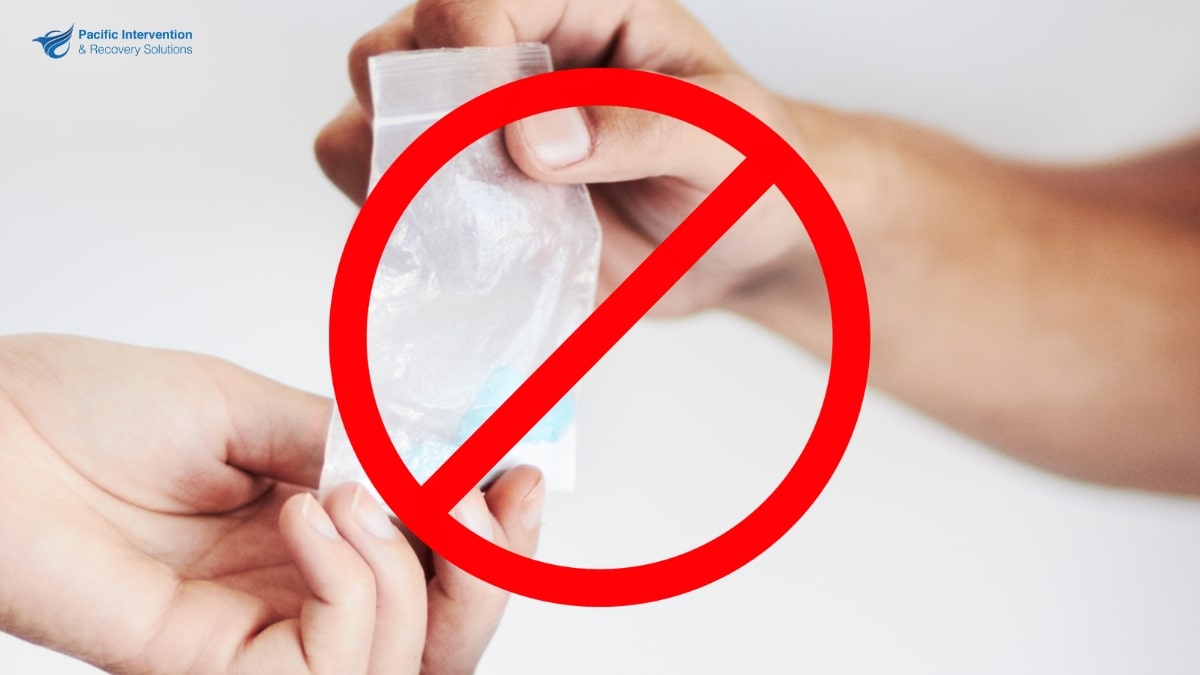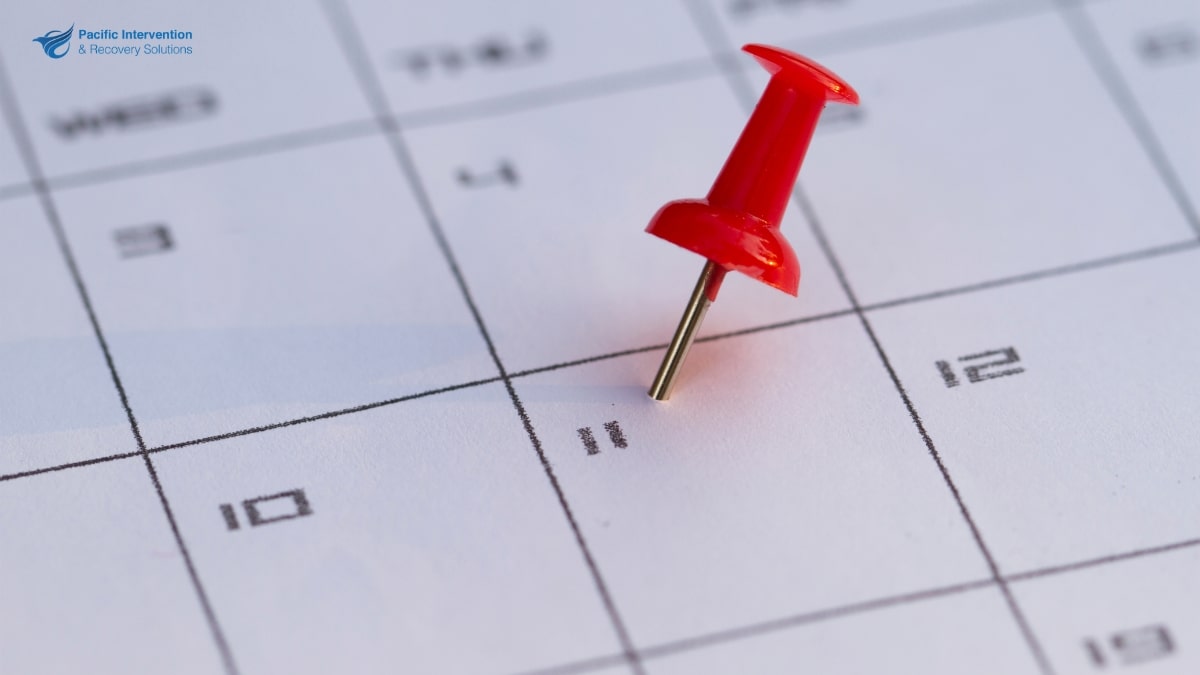If you intend to quit cocaine, you’re probably wondering, “How long does this voyage last?” There is no exact answer, as the duration depends on numerous factors. Yet, understanding the general timeline of cocaine withdrawal can act like a compass to help you find your way to recovery.
Here, we have decided to clarify the stages of withdrawal and the symptoms you might encounter. We will also equip you with strategies to better cope with the condition. We are sure that with this information, you can sail safely toward a drug-free horizon.

What is cocaine withdrawal?
When you’re addicted to cocaine, the idea of quitting can be scary. Being informed of what is expected can shed light on the path. Cocaine withdrawal is a challenging process that occurs when someone who has become reliant on cocaine use discontinues or significantly reduces their intake.
But why does withdrawal happen in the first place? Brain chemistry is the real reason. When you become dependent on cocaine, this drug pulls the strings of your brain’s reward and pain systems. It creates an artificial sense of joy by flooding your brain with dopamine. Over time, your brain gets used to this dopamine and starts to rely on cocaine to feel good. When you cut off the supply, your brain throws a tantrum—that’s withdrawal.
While readjusting to the lack or scarcity of cocaine, the brain shows its complaints through numerous unpleasant symptoms. This process of readjustment is what we call withdrawal, and while it can be tough, it’s also a sign that your brain is healing and finding its way back to balance.
Now, let us see what to expect on the way.
Common Symptoms of Cocaine Withdrawal
The symptoms that discomfort you throughout the cocaine withdrawal process disrupt your body and mind. While these symptoms are annoying, they are a good sign that your brain is reaching a new balance and your system is being recalibrated, leading to a safe and complete recovery.
Common physical symptoms include fatigue, increased appetite, slowed thinking, restlessness, and muscle aches.
Psychological symptoms show up as intense cravings, mood swings, depression, anxiety, and vivid, unpleasant dreams.
The Timeline of Cocaine Withdrawal
The severity and duration of symptoms are not the same throughout the whole process of cocaine withdrawal. The process is usually broken down into three phases: crash, peak, and extinction, each characterized by different lengths and levels of intensity.
Crash Phase (1-3 days)
A few hours after the last cocaine use, the initial phase, or the “crash,” begins. Struck by the crash, you might feel exhausted, irritable, and anxious. Your body, which is still reliant on cocaine’s energy boost, suddenly loses its strength due to the lack of the drug.
You will have to overcome intense cravings during this phase as your brain desperately seeks the stimulation it’s become used to. Some people even report feeling depressed or paranoid. This is your body starting its healing process. The whole process is supposed to take 1 to 3 days.
Craving Phase (1–10 weeks)
After the initial crash comes the craving phase. This is where the real test of endurance begins. Your energy levels might increase, but the psychological symptoms get worse. Mood swings make you feel like you are on an emotional seesaw. Having trouble sleeping is common, and some people report having vivid, drug-related dreams. This phase can last from a week to two and a half months, depending on various factors, which will be discussed later.
Extinction Phase (6 months and beyond)
The name “extinction” doesn’t mean your journey is over, but it does signify that the withdrawal effects are to improve. Fortunately, your mood starts to stabilize. Hopefully, you will feel more like the person you used to be before cocaine use. In this stage, you will experience less frequent and less intense cravings. Yet, occasional cravings can still annoy you, sometimes months or even years into recovery, especially during stressful times.
Note that the timeline explained is merely a general guide, not an exact timetable, and it is completely OK if you encounter it differently.

Factors Affecting Withdrawal Duration
Your experience with cocaine withdrawal may be distinct depending on numerous factors. So, no one can specify the precise time when the symptoms end. Some of these factors are listed below:
Frequency and Amount of Use
More extended periods of use and higher dosages of cocaine tend to prolong the withdrawal period. The deeper dependency on the drug causes long-term, heavy cocaine users to experience a longer and more severe withdrawal period than occasional users.
Overall Health
A physically fitter, healthier body can eliminate cocaine and adjust to its absence faster. Younger people tend to face milder symptoms throughout the process than older adults due to another influencing factor: age.
Co-occurring Mental Conditions
Mental issues, such as anxiety or depression, can aggravate and prolong the withdrawal process. These problems can intensify the period, so you’ll need further medical assistance and therapy.
Other Factors
You can have a more peaceful withdrawal phase with support systems and an appropriate recovery environment. People supported by a caring network can handle their withdrawals more confidently.
Coping Strategies for Cocaine Withdrawal
Here are some strategies to help you manage your cocaine withdrawal symptoms more easily.
Medical Support
There’s no magic pill to erase cocaine withdrawal. However, doctors prescribe medications to manage specific symptoms. Antidepressants, for example, may help with mood swings, and sleeping medications may help with insomnia. Heavy users tend to face more challenging effects, so medically supervised detox programs are recommended for them. In these programs, healthcare staff provide 24-hour support and immediate medical assistance whenever necessary.
Lifestyle Changes
A healthy, nutritious, well-balanced diet can empower the body to better handle challenges. Also, regular physical exercise, by naturally producing feel-good neurotransmitters once supplied artificially by cocaine, can fight cravings and improve mood swings. A consistent sleep schedule helps your body’s internal clock maintain stability.
Psychological Support
Your mind needs as much attention as your body during withdrawal. Cognitive-behavioural therapy (CBT), or motivational enhancement therapy, can help you with cravings and negative thoughts. Joining a group such as Narcotics Anonymous provides a sense of community as people can communicate with individuals who are going through similar experiences. Also, deep breathing exercises and meditation are two techniques that help drive away tension, which is very common during different phases of cocaine withdrawal.
The Importance of Professional Help
Seeking professional help during cocaine withdrawal can be beneficial for those with high-dosage use of cocaine or individuals suffering from intolerable symptoms. Addiction specialists can design personalized treatment plans that take into account the psychological as well as the physical aspects of withdrawal. Professional support ensures a comprehensive approach to rehabilitation, increasing the likelihood of a successful, long-lasting outcome.




